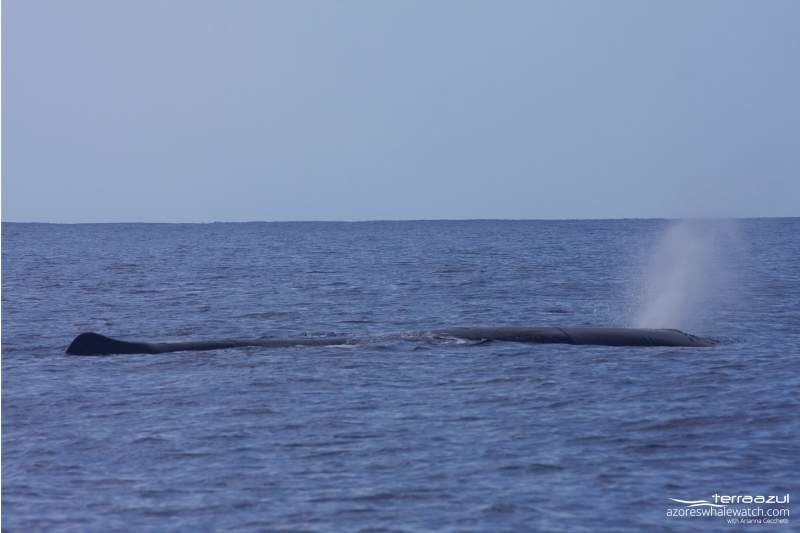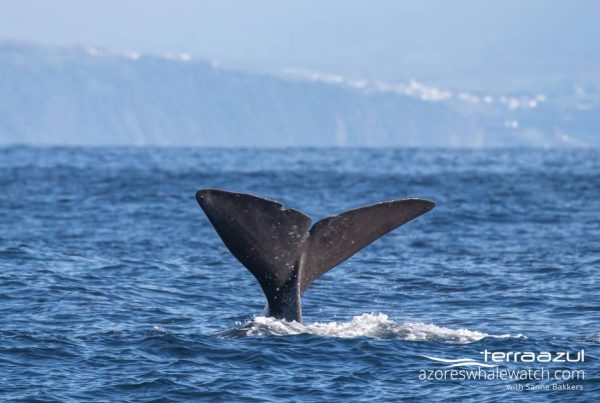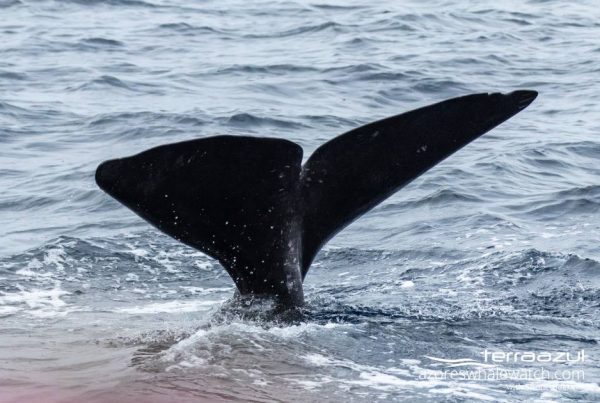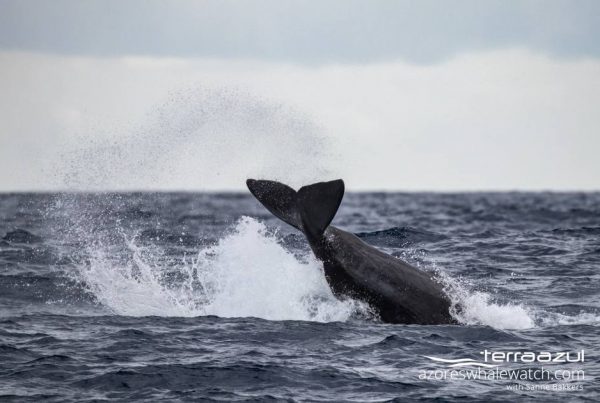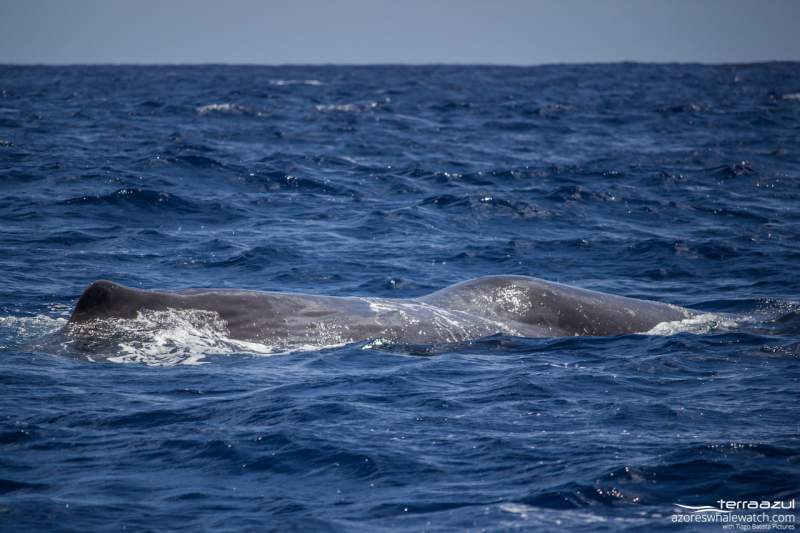
Sperm whales are starting to appear with more frequency and today we were able to observe them in both morning and afternoon tours.
During the morning two large individuals were resting, surfacing few times and sinking below the surface for few minutes before coming up again. One individual when was about to change its direction was rolling and part of its tail could be seen out of the water. Because of this behaviour they never showed their fluke entirely, but they allowed us to observe them close to the surface for a while. When Sperm whales show their fluke in fact it means they take a deep dive disappearing underwater for about 40 minutes.
The morning was also brighten by the presence of a nice group of bottlenose dolphins, which was slow travelling and we could accompany for sometime, and a small group of foraging common dolphins.
In the afternoon 1 large Sperm whale male appeared again, this time it took us a while to find him, but when we finally did, he was relaxing on the surface for a while, before taking a deep dive. When he slowly lifted his large fluke it seemed like a slow motion movie. Bye bye!
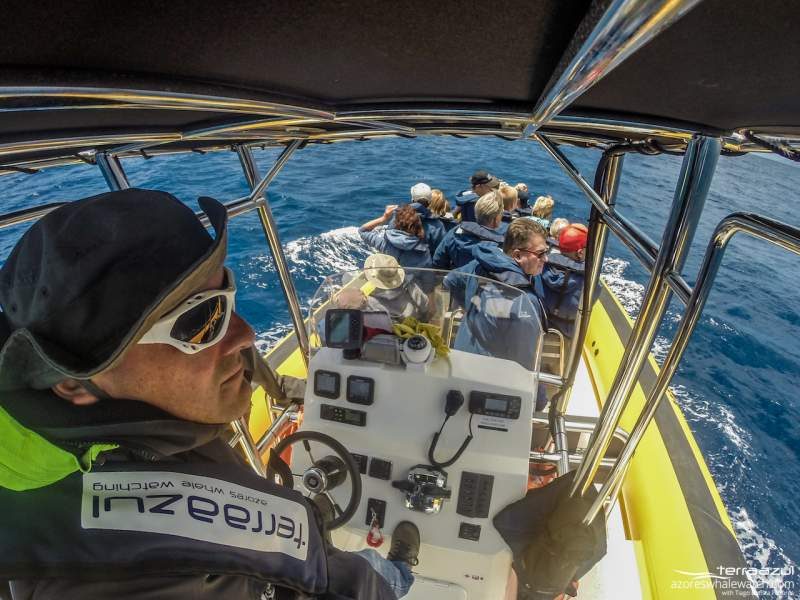
Group at sea onboard TAIII enjoying the Sperm whale sighting
In this tour the common dolphins were also present twice. The first pod was very relaxed and quite, and the second group was a bit more active and performing some jumps.
At one point a large shadow appeared next to our boat…Manta ray? Shark? Sunfish? It was a sunfish! They are the largest bony fishes on the planet and can reach 4 meters in length!
At 16h we swam with a relaxed group of common dolphins that later started feeding.
We also saw two sea turtles and collected quite a few plastic bags and a plastic crate. Due to the past strong southern winds the trash was pushed closer to the coast and since today the sea state conditions were very good they could be easily spotted. Plastic bags are a real concern for marine mammals and sea turtles, which can ingest them and eventually die for starvation as plastic prevent their food to be metabolised.
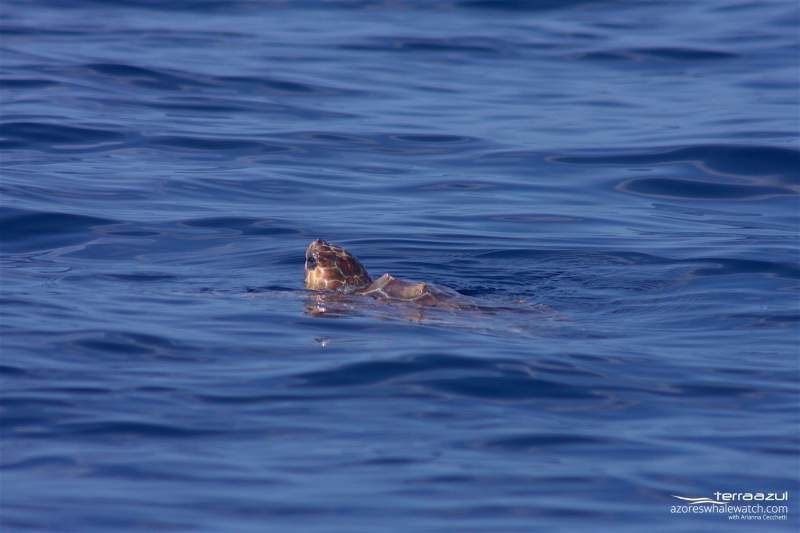
Loggerhead turtle / Caretta caretta
So an important message to all of us: let’s reduce the use of plastic and dispose it in a proper way!
